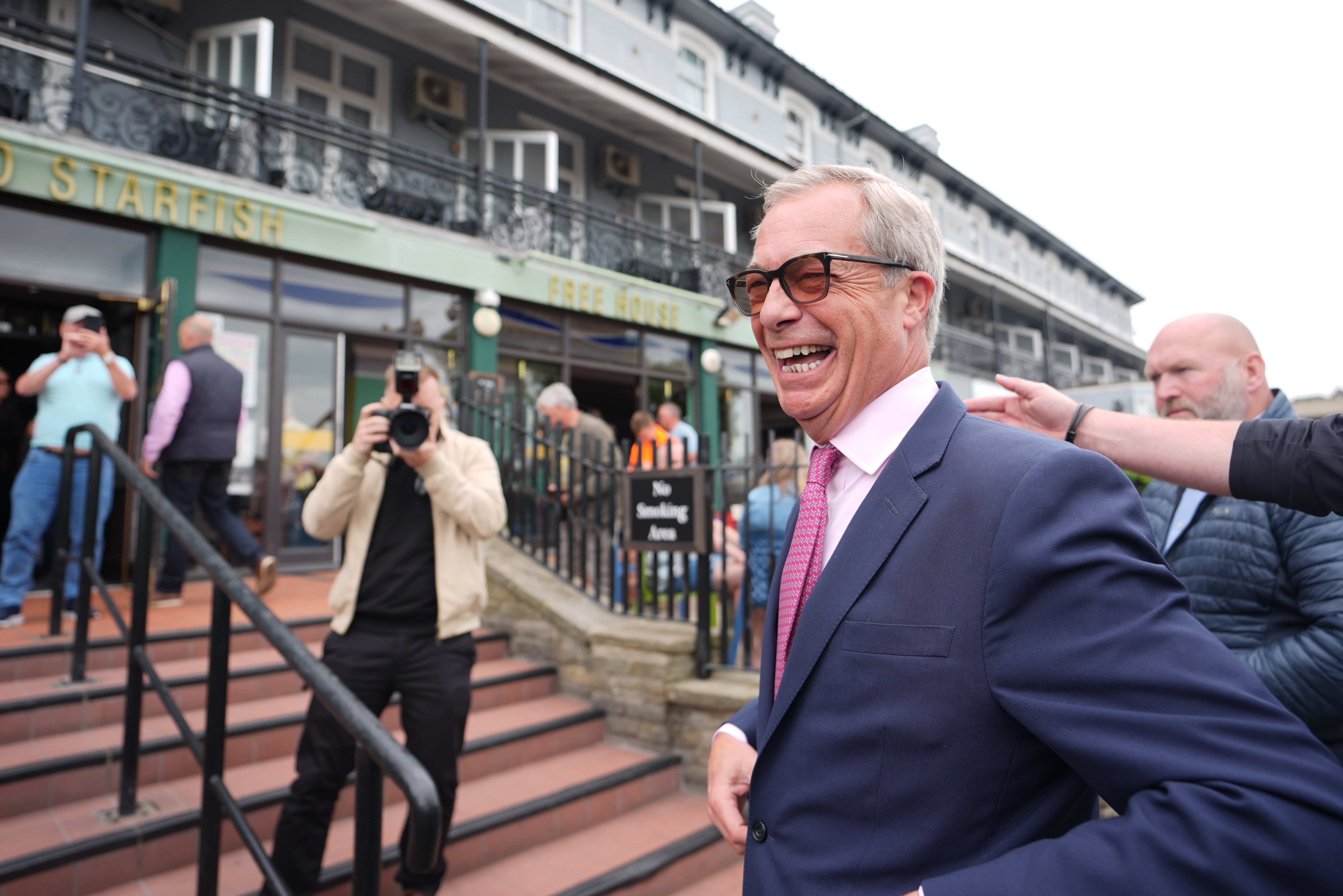Has Nigel Farage’s intervention turned this into the ‘immigration election’?
The proposal by the former Ukip leader to cut immigration to zero has cast a spotlight on the Tories’ own record. Andrew Grice asks what sort of impact this could have on the wider campaign


Nigel Farage has called for an “immigration election” after becoming leader of Reform UK and deciding to stand as the party’s candidate in Clacton. The former Ukip and Brexit Party leader proposed that net migration, which stood at 685,000 last year, be reduced to zero. He said Reform would “freeze non-essential migration” to “reverse long-standing wage depression and save Britain’s public services from the burden of unlimited demand”.
His unexpected intervention in the election will put the Conservatives’ record on immigration under the spotlight, and could make it harder for them to put Labour under pressure on the issue.
Will immigration now dominate the campaign?
Farage’s prominent role, and his ability to grab media attention, will probably propel the issue higher up the agenda. Some Labour figures fear, as Peter (now Lord) Mandelson put it, that Farage could “skew the debate” towards his agenda and “syphon off some of the oxygen” from Labour’s campaign. But the issue is likely to be less salient than it was in 2019, when Boris Johnson pledged to “take back control” of Britain’s borders after Brexit.
The Tories sense a Labour weakness, but their ability to capitalise on it has been harmed by a dramatic rise in net migration, which they have promised to cut at every election since 2010 but which rose to a record 764,000 in 2022. Then there is Rishi Sunak’s failure to meet his overambitious pledge last year to “stop the boats”. Opinion polls suggest that Labour is more trusted on the issue than the Tories.
Immigration is a priority for those who voted Tory in 2019, but among the wider electorate it is well behind the cost of living and the NHS, so there is a limit to how much time the two main parties will devote to it. Farage will enjoy a high profile, but is unlikely to get the “immigration election” he wants.
What are the Tories proposing?
Sunak has tried to outflank Labour by promising to introduce an annual cap on the number of work and family visas issued by the UK each year. The cap would be lowered in every year of the next five-year parliament if the Tories retain power.
Ministers declined to announce a precise number of visas. That would be recommended by the independent Migration Advisory Committee, which would consider both the costs and benefits of migration. The committee has previously said it has no view on the appropriate level of net migration, which it considers “a matter for government”.
The policy stops short of the call from Robert Jenrick, the former immigration minister, for net migration to be capped at 100,000.
What is Labour saying?
Keir Starmer called the Tory plan “a cap without a cap”. He reiterated Labour’s goal to bring down net migration, but refused to commit to a figure or guarantee that it would fall every year. The Labour leader told The Sun on Sunday: “Read my lips – I will bring immigration down.”
A Labour government would ban companies that are breaching employment laws from hiring workers from overseas, and order businesses applying for foreign worker visas to train Britons to do the jobs. But Starmer’s approach has been criticised by left-wingers and by some employers and trade unions.
What will happen to net migration after the election?
No matter which party is in power, it should fall, as one-off factors such as accepting people from Ukraine and Hong Kong subside and the government’s restrictions on dependents’ visas for students and careworkers take effect. By next year, some experts think it could drop to around 350,000, closer to the long-term average of 250,000 over the last 25 years.
What’s the latest on the Rwanda scheme?
Some ministers had privately hoped that the first flight deporting migrants to Rwanda might finally take off shortly before the 4 July election, giving Sunak a much-needed boost. But government lawyers have now told the High Court that the earliest they could start is 24 July. Labour has pledged to scrap the programme.



Join our commenting forum
Join thought-provoking conversations, follow other Independent readers and see their replies
Comments